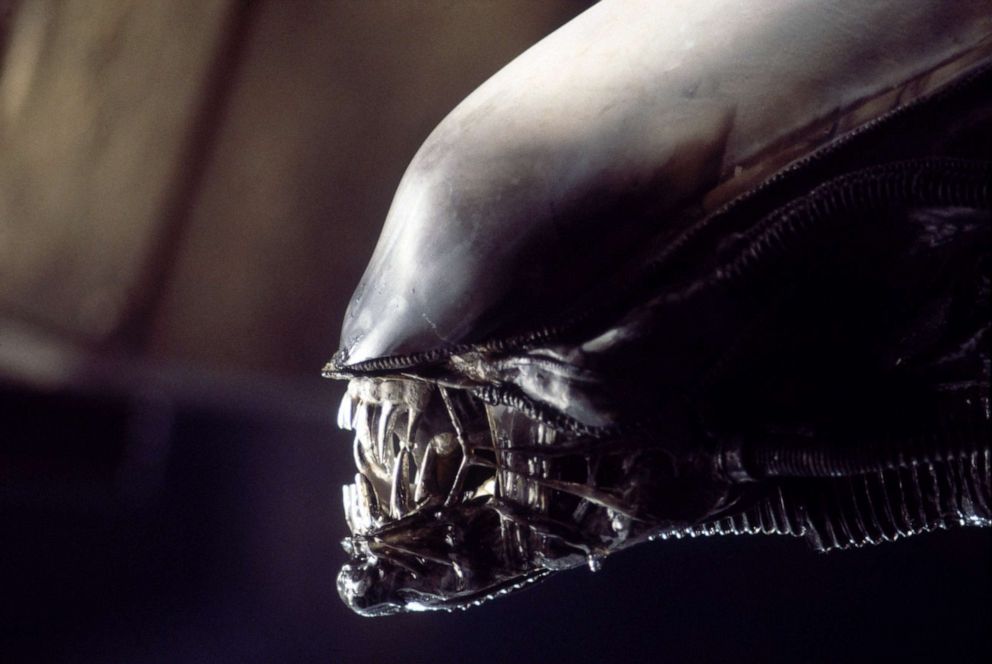'Alien' turns 40: How the classic changed the game for women in action films
The iconic film turns 40 this weekend.
Sigourney Weaver recently told Reuters ahead of the 40th anniversary of "Alien" that she initially was excited about the project, as it was a "small film" and had a "tiny cast."
Boy, was she wrong.
While the film may have had humble beginnings in 1979, the impact on the Ridley Scott-directed feature was enormous -- and still resonates four decades later.
And though it's taken decades to gain the traction we see today, with films like "Captain Marvel" and "Wonder Woman" boasting women both in front of and behind the camera, the roots Weaver planted all those years ago is one of the main reasons these films can and do thrive today.
Move aside boys
Weaver ended up playing the game-changing Ripley only after a last-second change to the script that previously had an all-male cast.
In her interview with Reuters, she said she believes the reason that a woman was cast as the final survivor in that film was shock value, because no one would think a woman would be the last "man" standing so to speak.
In the film, Weaver stars alongside Tom Skerritt, Harry Dean Stanton and John Hurt, as crew members aboard a commercial space ship headed back to Earth, before bumping heads with an alien so deadly and ugly that it would give even Rambo nightmares.
In the end, it's Ripley alone that is left to kill this beast, uncovering a nefarious plot in the process.
Like "Star Wars" a couple years prior, "Alien" featured a no-nonsense woman in Weaver as one of the leads, though she was a relatively unknown prior to this film.
Much like with Carrie Fisher as Princess Leia in "A New Hope," this film launched the film career for the then 29-year-old.
Beyond bankable at the box office
As it's always about the bottom line in Hollywood, "Alien" showed producers what a leading lady in this type of role could bring in.
With a paltry production budget of just around $11 million, "Alien" would go on to dominate the box office of 1979, bringing in more than $100 million worldwide.

It was also No. 1 at theaters for four straight weeks, per Box Office Mojo.
The project did so well that a sequel was launched seven years later and made over $130 million worldwide.
As to why this movie and this role resonated so much with audiences, The Independent's Ed Cumming sums it up by saying, "[Alien] still the most gripping sci-fi horror ever made."
"The gender politics have never felt more acute," he added, but with the caveat, "The film was never intended to be a feminist statement."
Cumming cites an earlier quote from Weaver, which read, "The writers were especially smart in that they didn’t turn Ripley into a female character. She was just a character, a kind of Everyman, a young person who’s put in this extraordinary situation."
The scribe eloquently adds, "Her intelligence and resolve against the bigger threats, in a world full of aggressive, violent men, remain a benchmark in an era of #MeToo."
An inspiration for actresses, even today
Daenerys Targaryen, Sarah Connor, even Katniss Everdeen have all taken cues about being strong and unrelenting in the face of grave danger and those cues came from Weaver's Ripley.
Jennifer Lawrence, Charlize Theron and so many others have vocalized what Weaver's character meant to them, stepping into their roles as heroines.
"I think we would be remiss not to acknowledge Sigourney Weaver and Linda Hamilton,” Theron told Variety a few years back in advance of her film "Atomic Blonde." In fact, she called "Alien" and Hamilton's "Terminator" in 1984 moments in our past when the "glass ceilings," were absolutely broken.
For Weaver, she credits the writing, the bravery at that time period to put a woman of Ripley's caliber on the page for a movie back in the 1970's.
"I’m very flattered when actresses talk about Ripley, I feel very fortunate that I got to play her, but I have to certainly acknowledge the writers," she told Entertainment Weekly in 2017. "I saw how hard it was to write a woman in a heroic, straight, unsentimental, authentic way."
The reason it still resonates with women today in the industry is how real Ripley is, Weaver adds.
"So many people in the business would have said, ‘Well now we have to make her more sympathetic.’ And then it’s suddenly this token scene that shows we’re actually feminine after all, and that’s frankly bulls---, because that doesn’t happen in real life. Ripley doesn’t have time to try to be sympathetic, you know?” she added.
Basically, Weaver's Ripley was a superhero long before the genre took over the box offices the past two decades.
"It’s fantastic that they’re writing good women’s parts in these movies, because I think [the genre] reflects how powerful women are,” she said 2017 of science fiction and movies in these genres. “ For a long time, it felt like there weren’t those roles, or if there were, there was a great emphasis on sexuality. Now we’ve sort of found a balance.”
There's still a long way to go toward equality in Hollywood, but Weaver and Ripley certainly were major pioneers.




